Metro Manila mayors tour Amsterdam to study best bike practices
Mayors from ten cities in Metro Manila are taking a closer look at Amsterdam’s bicycle infrastructure to gain insights on systems that can possibly be used in the country. The capital of Netherlands is known for being one of the most bicycle-friendly cities in the world.
Sponsored by the Metropolitan Manila Development Authority (MMDA), the study tour highlights best practices in water management, flood control, inclusive and sustainable mobility and circular economy that can be used in the Philippine setting.
The official delegation includes Mayor Joy Belmonte of Quezon City, Mayor Ruffy Biazon of Muntinlupa, and other officials from San Juan, Caloocan, Malabon, Navotas, Pasay City, Valenzuela, Mandaluyong and Pateros.
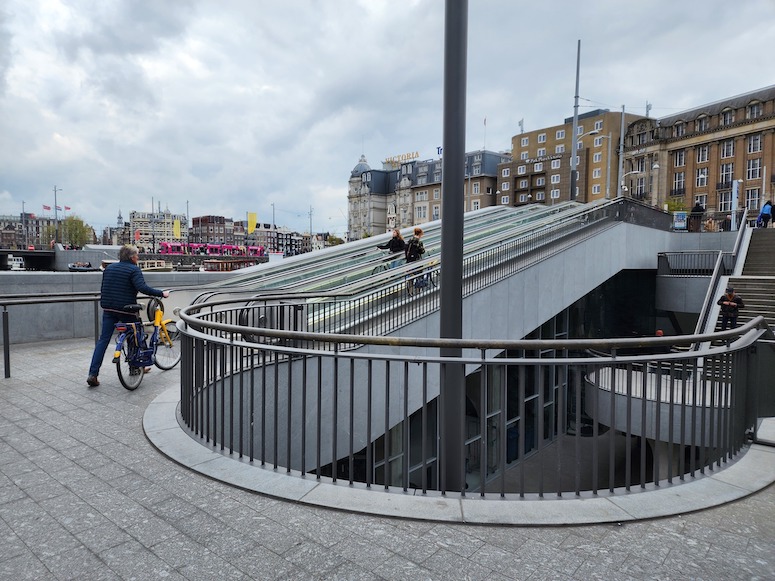
On the third day of their tour (April 20), the officials visited two modern bicycle parking facilities built under canals and rivers in Amsterdam.
The Stationsplein Underwater Bike Parking Facility, opened on January 26, 2023, is the largest bicycle parking facility in the city, and can store almost 7,000 bicycles. The massive feat of engineering took roughly four years to build and cost 65 million euro (roughly P3.67 billion). The bike garage built under the river in front of the Amsterdam Cetntral Train Station aims to reduce the number of bikes parked on the street and in sight.
Muntinlupa Mayor Biazon praised the multi-level design of the bike rack in the facility, citing the ease in parking for all types of cyclists and convenience of use for “last mile transportation” for train commmuters.
According to Biazon, cyclists can make use of the bicycle parking area and facilities, which are connected to their city's train and tram lines, for free for the first 24 hours.
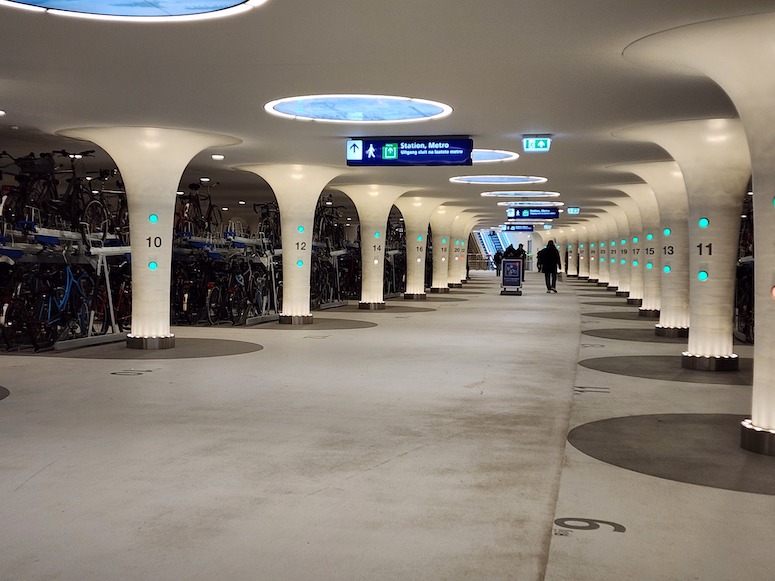
He also noted how Amsterdam had bicycles for rent in the station that could be used with the same card used on other modes of public transport similar to Beep cards used in the MRT and point-to-point buses.
Following the visit, Mayor Belmote pointed out that Quezon City continues to ensure that the city remains bike-friendly and eco-friendly with accessible and safe facilities for bikers and pedestrians.
Quezon City currently has a 93-kilometer bike lane network with dedicated bike patrollers to support cyclists. The city government has also installed bike ramps on 40 footbridges and underpasses for more convenient cycling in the city.
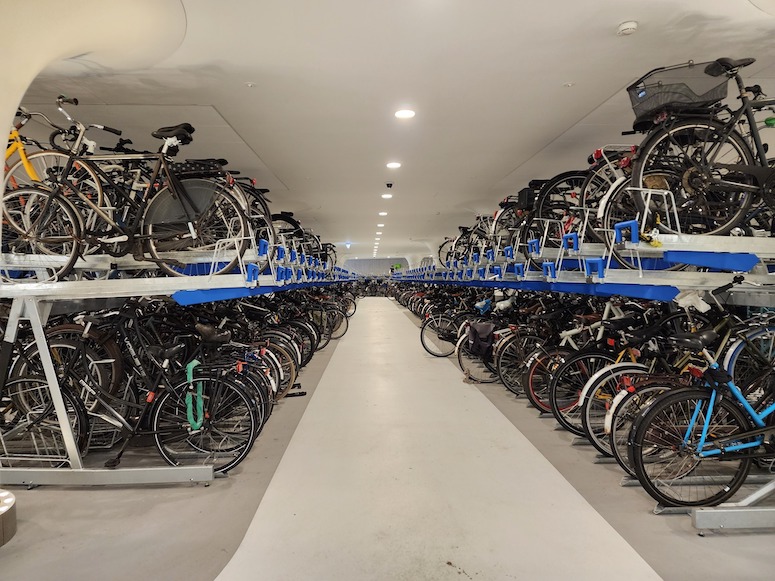
Biazon said that while he does not see Muntinlupa population’s biking public to reach the same number as that of the Netherlands, the Philippines could replicate ideas on a smaller scale.
“Pero definitely, yung sistema na ginagamit dito ay pwede natin gamitin sa mas maliliit na parking (But definitely, we can use the system they use here in small parking areas),” he said.
The city officials also visited another recently opened underwater parking in IJ Boulevard in Amsterdam, which has a smaller capacity for storing 4,000 bikes.
According to the Dutch Cycling Embassy, roughly 63% of Amsterdam citizens cycle on a daily basis, with an estimated 767 kilometers of cycle paths and bicycle lanes available in the city. Almost all roads are fitted with either bicycle lanes or dedicated cycle paths. In fact, Netherlands has more bicycles than people, with over 22 million bicycles in relation to its 18 million residents.
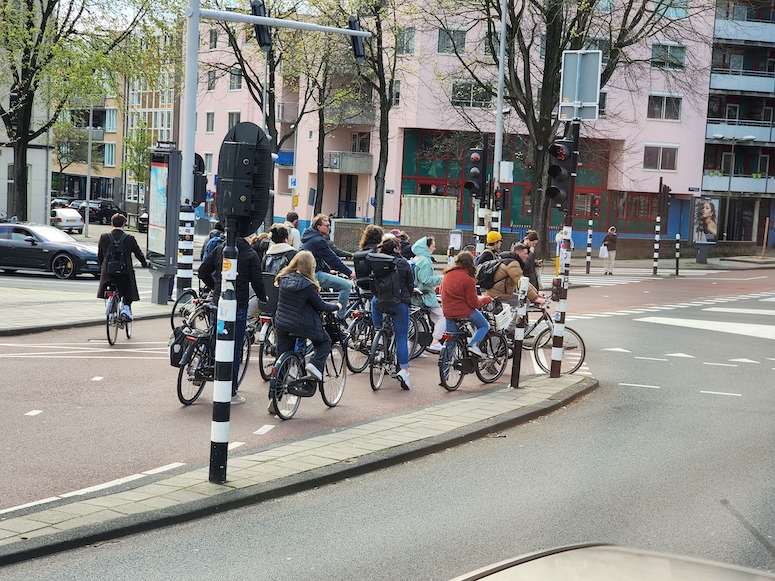
Bicycle use boomed in Metro Manila due to restrictions in public transportation during the lockdowns, which led to some improvements in infrastructure. During the pandemic, bike lanes were established along major roads in the metro such as EDSA, Macapagal Boulevard, C5, and Ayala Avenue.
In 2021, the Department of Transportation (DOTr) and the Department of Public Works and Highways (DPWH) announced the completion of the 313.12 kilometers of bike lanes passing through 12 cities in Metro Manila alone.
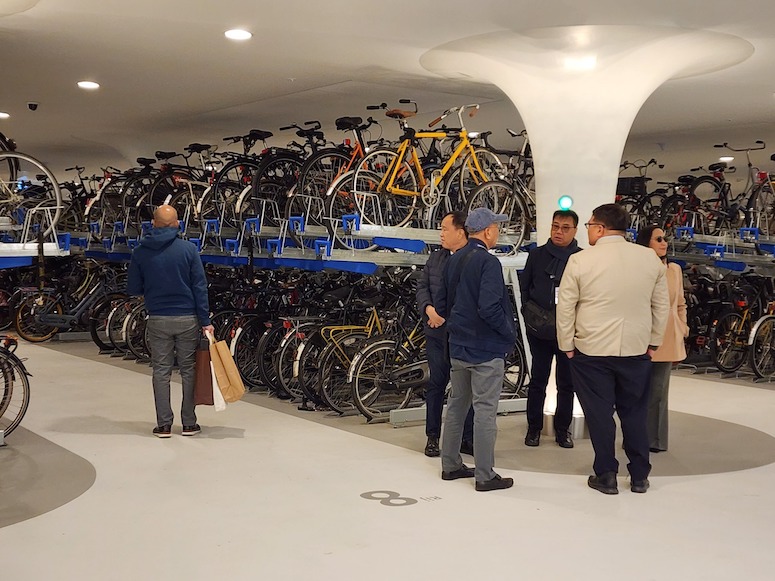
This brings the total length of the country’s bike lane network to 497km with a design capacity of 1,250 cyclists per hour per meter of bike lane.
According to the DPWH, there’s a planned network of 1,778 kilometers of bike lane projects across the entire country in the works.
Hopefully the study tour will help local officials come up with more bike projects and plans to promote sustainable mobility in the country.


